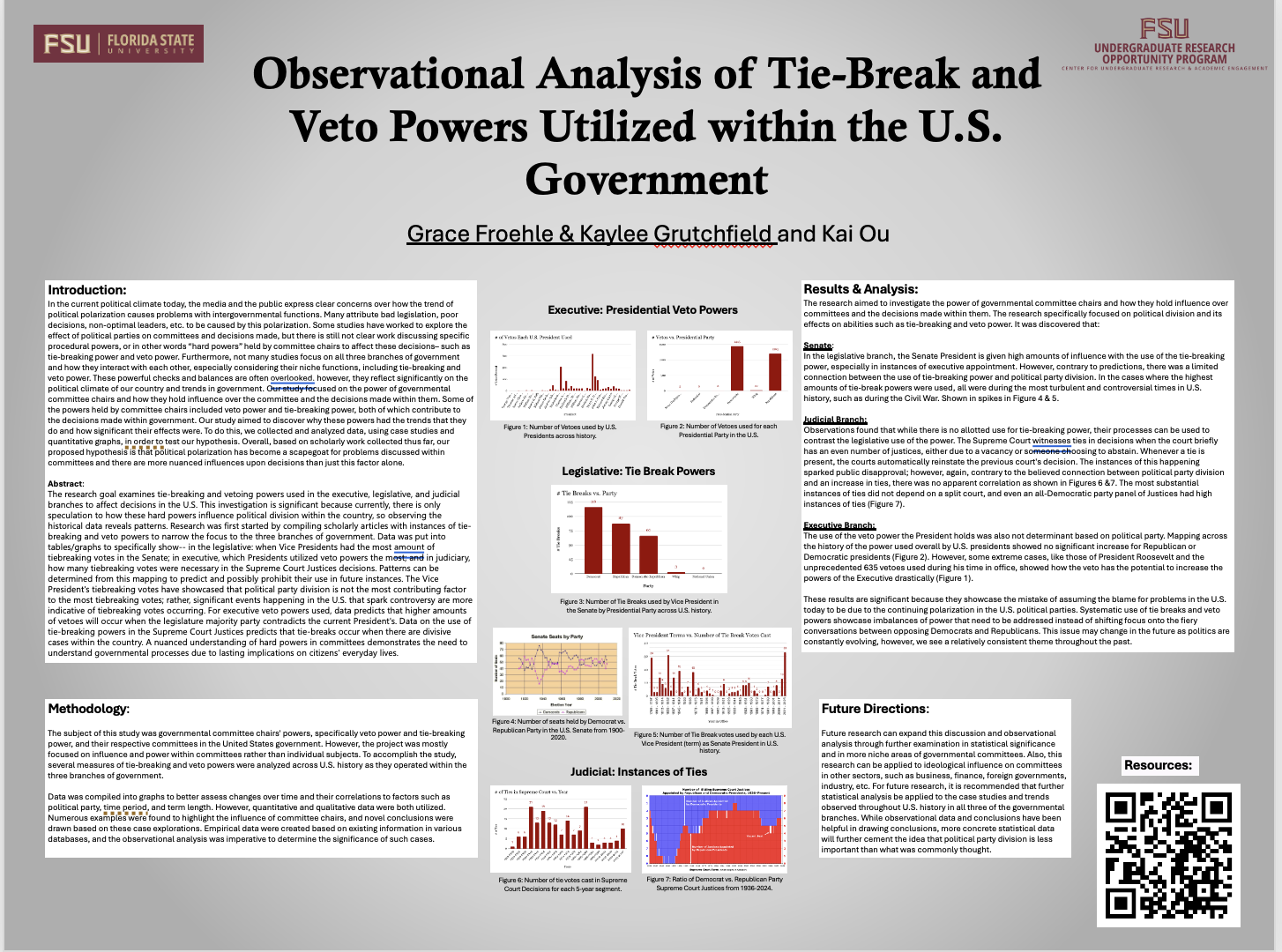Research Symposium
25th annual Undergraduate Research Symposium, April 1, 2025
Kaylee Grutchfield Poster Session 3: 1:45 pm - 2:45 pm/ Poster #85

BIO
Hello everyone! My name is Kaylee Grutchfield and I am currently a freshman at Florida State University studying Political Science. I wanted to join UROP as an opportunity to learn more about research and the field that I'm passionate about. In my future, I would like to go into law and become an attorney, so learning more about Political Science and the government through this project has been extremely beneficial. I'm excited to present at the Symposium and learn more about other projects as well.
Observational Analysis of Tie-Break and Veto Powers Utilized within the U.S. Government
Authors: Kaylee Grutchfield, Kai OuStudent Major: Political Science
Mentor: Kai Ou
Mentor's Department: Political Science Mentor's College: College of Social Sciences and Public Policy Co-Presenters: Grace Frohle
Abstract
The research goal examines tie-breaking and vetoing powers used in the executive, legislative, and judicial branches to affect decisions in the U.S. This investigation is significant because currently, there is only speculation to how these hard powers influence political division within the country, so observing the historical data reveals patterns. Research was first started by compiling scholarly articles with instances of tie-breaking and veto powers to narrow the focus to the three branches of government. Data was put into tables/graphs to specifically show-- in the legislative: when Vice Presidents had the most amount of tiebreaking votes in the Senate; in executive, which Presidents utilized veto powers the most; and in judiciary, how many tiebreaking votes were necessary in the Supreme Court Justices decisions. Patterns can be determined from this mapping to predict and possibly prohibit their use in future instances. The Vice President's tiebreaking votes have showcased that political party division is not the most contributing factor to the most tiebreaking votes; rather, significant events happening in the U.S. that spark controversy are more indicative of tiebreaking votes occurring. For executive veto powers used, data predicts that higher amounts of vetoes will occur when the legislature majority party contradicts the current President's. Data on the use of tie-breaking powers in the Supreme Court Justices predicts that tie-breaks occur when there are divisive cases within the country. A nuanced understanding of hard powers in committees demonstrates the need to understand governmental processes due to lasting implications on citizens' everyday lives.
Keywords: Political Science, Game Theory, Committee Power

